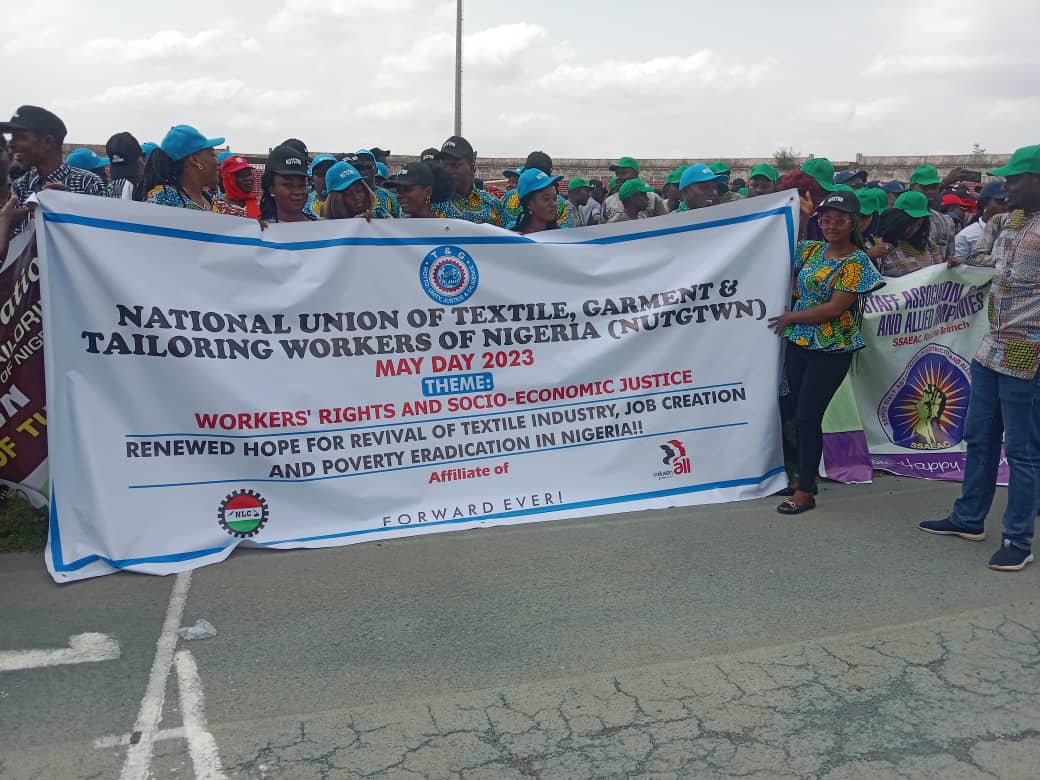
Unions are welcoming a new minimum wage of N30 000 ($83) recommended by the Tripartite Committee on the National Minimum Wage as an important step towards living wages in Nigeria.
The announcement on the national minimum wage on 6 November came when the unions were on the brink of going on strike which has since been called off. The old minimum wage of N18 000 ($50) was no longer enough for workers to meet the basics including food, transport, housing, health and education and other necessities. The buying power of the minimum wage set up in 2010 had been eroded by inflation. Further, the unions were concerned by the late payment of the wages, even on the paltry old minimum wage, in 33 of the country’s 36 states.
IndustriALL Global Union’s seven affiliates in Nigeria, organizing in the energy, engineering, oil and gas, and textile and garments, welcome the announcement and are calling on the government to speedily gazette the wages into law so that employers can start paying them. Initially, the unions wanted the minimum wages to be increased to over N65 000 ($179) and are taking an incremental approach.
Says Issa Aremu, IndustriALL Vice President and general secretary of the National Union of Textile, Garment and Tailoring Workers of Nigeria: “Whilst we welcome the minimum wages, the struggle for living wages continue. Nigerian workers should be paid decent wages to get rid of cases of the working poor – workers who live in poverty yet they are employed. The workers living conditions must improve, and higher wages can assist in achieving that goal. Efforts must also be made to end precarious work.”

The unions say the Federal Government of Nigeria’s Economic Recovery and Growth Plan and the National Industrial Revolution Plan can boost the struggling economy. They argue that if fully implemented these plans have the potential to revive industries including in the textile and garment sector and to create sustainable jobs.
Further, the unions are recommending that Nigeria, which gets 80 per cent of its export revenue from crude oil, must move away from exporting raw materials by increasing its manufacturing value addition from the current 5 per cent. The country also needs to develop infrastructure such as roads and improve on the provision of electricity as some of the ways to stimulate industrial development.






